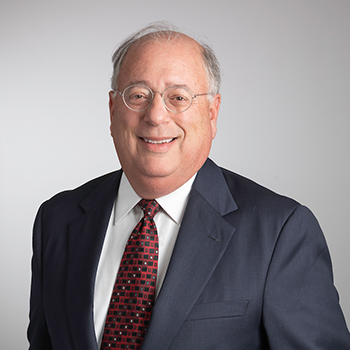What can SoFla’s startup culture learn from the Theranos verdict? Experts weigh in
By David Lyons
January 8, 2021
As the fallen startup wunderkind Elizabeth Holmes awaits her sentencing for defrauding investors in her failed blood testing company, Theranos, what does the verdict the mean for venture capital investors in South Florida and elsewhere around the nation?
Holmes’s story is startling. She quit Stanford at 19, became a Silicon Valley executive and founded a blood-testing company that made unfulfilled promises of a technology that could revolutionize the industry. The firm was buttressed by the support of private and public sector titans including computer mogul Larry Ellison, former President Bill Clinton and media baron Rupert Murdoch. Former U.S. Secretaries of State George Shultz and Henry Kissinger sat on the Theranos board.
But in 2015, Shultz’s grandson, Tyler, a company employee, turned whistleblower and raised questions about the truth of Theranos’ claims and the Wall Street Journal launched an investigation.
Holmes last week was convicted in a California federal court of defrauding investors who sank millions into her company. She faces a maximum sentence of 20 years in prison, a fine of $250,000, plus restitution, for the conspiracy count and each of three counts of wire fraud.
The fallout, and South Florida
Post-verdict, commentators are divided on what the trial outcome means for the venture capital industry: Some insist the case was an exception rather than a sign of a flawed system that funnels billions into startups that seek to deliver new innovations to industries ranging from health care to transportation.
RELATED: Former Theranos CEO Elizabeth Holmes guilty of fraud and conspiracy »
Others believe it is symptomatic of a financial space where investors easily can be taken by “fake it until they make it” operators who offer more hype than results.
Meanwhile, South Florida has become a hotbed for startup culture, as more entrepreneurs relocate to the region from the Northeast, California and elsewhere, fueling a growing movement for entrepreneurs who need financing, mentoring and other support that will increase their odds of success.
The South Florida Sun Sentinel asked five experts familiar with the startup industry about the verdicts’ implications and how investors should proceed if they seek to join a burgeoning startup culture filled with both opportunities and risks.
They include:
- James Cassel: investment banker, chairman and co-founder, Cassel Salpeter & Co., Miami.
- Scott Jablonski: partner, business, finance and tax team, Berger Singerman, Fort Lauderdale.
- Jeffrey Sonn: securities litigator, managing partner, Sonn Law Group PA, Aventura.
- Siri Terjesen: associate dean and professor of entrepreneurship, Florida Atlantic University College of Business, Boca Raton.
- Mark Volchek: founding partner, entrepreneur turned venture capitalist, Las Olas Venture Capital, Fort Lauderdale.
Impact on venture capital scene
Cassel: I don’t think this is a great “oh my gosh” moment that has come out that should shock people or change things drastically. There has been a very frothy situation with investors very quickly making decisions without maybe spending the time to do appropriate due diligence. And I think to a certain extent that’s what’s happened more in California than other places
Sonn: I think it’s a tip of the iceberg. I’m seeing in the last 10 years, and more so in the last five, the emergence of what we call fintech. Companies are raising small amounts from thousands and thousands of people. In the old days you would go out and raise money in large chunks. Now it’s more decentralized. We’re seeing more and more fraud out there in this type of platform.
Terjesen: I’m very glad this case is so public because people need to know, not only because there are liars and charlatans out there, but also because medical and biotechnology is an extremely risky business and not everyone does well.
Volchek: I’ve heard lots of people talk about focusing more on governance. There is no expectation that every company will be successful. I think they [investors] chalk it up to a loss and move on. I think they will say they will do more diligence. In this case there was so little oversight and so little governance. I was shocked when I saw the company was founded literally more than 15 years ago. This was a long drawn-out process of something that never worked.
How can investors avoid disaster?
Sonn: Obviously when it comes to a private deal, I think audited financial statements are key. People should not be afraid to ask. Number two, check the backgrounds of the principals. Find out if they have past bankruptcies, past tax liens, or past business failures.
You go to wherever the principals are and search the local courthouse websites to see what kind of litigation they’ve been involved in. When people invested with Elizabeth Holmes, how many of them paid attention to the fact she dropped out as a freshman from Stanford? How many paid attention to the fact she had no medical background?
Terjesen: When I look at this case, I feel like there is a halo effect happening such that once that [Holmes] got legitimacy from certain individuals and organizations, everyone else took her at her word.
RELATED: The Elizabeth Holmes story is not about the black and the blinks »
Naturally many people wanted to see a success story of a young smart woman in the medical space. Certainly, multiple people should have dug deeper and there wasn’t very effective governance. I hope it makes people more willing to do deeper due diligence in the future. I personally find it hard to attribute the lack of oversight to one particular individual, whether it was the chairman of the advisory board or the chief scientist.
Joblonski: Most venture capitalists I’ve worked with — if you think about the nature of what it is — it’s a higher risk investment that they expect to be illiquid for a while.
Professional investors in the venture space all do a basic level of due diligence because it’s high risk, because it’s illiquid, because it’s long-term and there is a great opportunity for an exit. The experienced venture investors … they have methods and they sort of get to know these founders and startups and emerging companies.
Volchek: We’re active. We get to know the management teams. We also do a lot of diligence up front. I think our diligence focuses on the founders. We certainly do background checks.
We spend a lot of time with individuals before making investments. We try to get to know folks. What I recommend to individuals is to invest in a fund, which is somewhat self-serving. People invest as a group rather than as individuals. It might be easy to fool one person, but it’s hard to fool 50 people in a room. I think it’s important to have lots of folks looking at something.
What startups should be doing
Joblonski: You don’t want to mislead investors, no matter at what stage of investment you are. That’s just the bottom line. The devil is in the details. It centers around the anti-fraud provisions of state and federal securities laws. The general advice is you don’t mislead. You should be as transparent as you can be. Investors want transparency, even if something isn’t rosy.
RELATED: Were you victimized by South Florida’s most depraved scams? »
Terjesen: At FAU in our classes we are absolutely teaching students how to speak transparently to investors and also how to consistently do due diligence in all parts of the business. We do that through classes and also having guest speakers who are successful entrepreneurs who have been there. And we can also use cases like this to show what happens when they don’t get this right.
What of South Florida’s future?
Joblonski: It’s exciting that our area geographically is seeing the volume of entrepreneurial activity in a variety of sectors that just don’t involve real estate funds. It is something that has been slow to move but has been taking off.
You’ve got a lot of people moving here. You’ve got sophisticated financial services people coming down in droves. You’ve always had the influx of diversified capital. Are we going to be Silicon Valley? No. Are we going to be Boston? No. Maybe we’re going to be our own brand of innovation locale. There is so much opportunity.
Click here to read the PDF.
Click here to read the full article.




